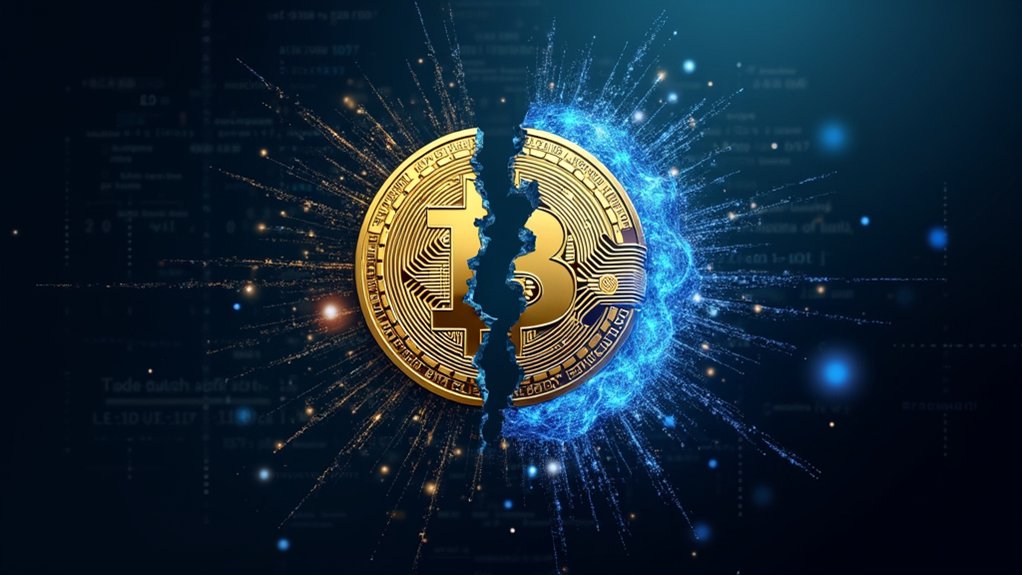As quantum computing looms like a digital sword of Damocles over Bitcoin’s future, developer Agustin Cruz has dropped a bombshell proposal that’s making waves across the crypto community. His Quantum-Resistant Address Migration Protocol (QRAMP) isn’t just another minor upgrade – it’s a full-blown hard fork that would fundamentally change how Bitcoin handles its cryptographic security.
Cruz’s QRAMP proposal hangs over Bitcoin like an ultimatum: adapt to quantum threats or risk everything.
The stakes couldn’t be higher. Bitcoin’s current cryptographic backbone, ECDSA, could crumble like a house of cards once quantum computers reach sufficient power. And with tech giants like Google and Chinese labs making rapid advances, that day might come sooner than we’d like. Think years, not decades. Research shows that breaking Bitcoin’s cryptography would require a quantum computer with 13 million physical qubits. The proposal includes a predetermined block height to implement new transaction restrictions.
Cruz’s solution? Force everyone to move their coins to quantum-resistant wallets by a specific deadline. No exceptions, no delays. Users who drag their feet will find their Bitcoin trapped in permanently inaccessible addresses. Yes, even Satoshi’s fortune wouldn’t be immune to this digital doomsday clock. The Byzantine Fault Tolerance systems could offer additional protection against quantum attacks.
The proposal has sparked fierce debate in the Bitcoin community. On one side, supporters argue it’s better to act now than scramble later when quantum computers are breathing down our necks. After all, we’re talking about protecting over $500 billion in assets. The upgrade would align Bitcoin with post-quantum cryptographic standards and guarantee its long-term survival.
But here’s the kicker – hard forks are messy business. Miners need new hardware. Nodes need upgrades. Users need to actively participate or risk losing everything. And let’s be honest, forcing people to move their coins or lose them forever isn’t exactly going to win any popularity contests.
Some skeptics are rolling their eyes, arguing it’s too soon for such drastic measures. But with quantum computing advancing faster than expected, the crypto community faces a stark choice: adapt now and weather the temporary chaos, or risk watching Bitcoin’s security eventually become as effective as a paper lock on a bank vault.





